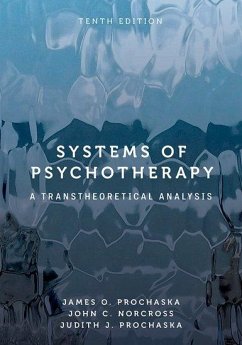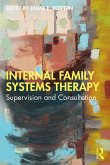Comprehensive, systematic, and balanced, Systems of Psychotherapy uses a wealth of clinical cases to help readers understand the major psychotherapies, including psychodynamic, existential, experiential, interpersonal, exposure, behavioral, cognitive, third wave, systemic, multicultural, and integrative. The tenth edition of this landmark text thoroughly analyzes 15 leading systems of psychotherapy and briefly surveys another 32, providing students and practitioners with a broad overview of the discipline.
Hinweis: Dieser Artikel kann nur an eine deutsche Lieferadresse ausgeliefert werden.
Hinweis: Dieser Artikel kann nur an eine deutsche Lieferadresse ausgeliefert werden.








